Study in South Korea. 94 best institutions in South Korea
-
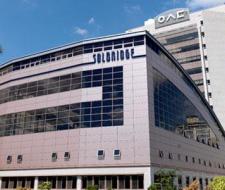 Accreditations AACSB
Accreditations AACSB South KoreaDaejeonCurrently watching: 7from 13056.00 $ / yearApply with documents
South KoreaDaejeonCurrently watching: 7from 13056.00 $ / yearApply with documents -
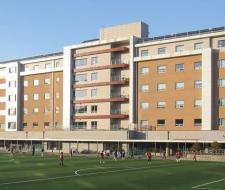 from 7050.00 $ / yearApply with documents
from 7050.00 $ / yearApply with documents -
 from 2049.00 $ / weekApply with documents
from 2049.00 $ / weekApply with documents -
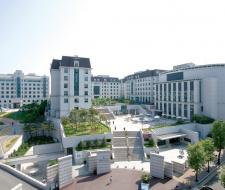 from 2399.00 $ / 2 weeksApply with documents
from 2399.00 $ / 2 weeksApply with documents -
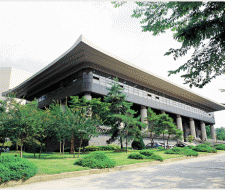 from 4384.00 $ / yearApply with documents
from 4384.00 $ / yearApply with documents -

 South KoreaDaejeonCurrently watching: 2from 7000.00 $ / yearApply with documents
South KoreaDaejeonCurrently watching: 2from 7000.00 $ / yearApply with documents -
 from 13143.00 $ / yearApply with documents
from 13143.00 $ / yearApply with documents -
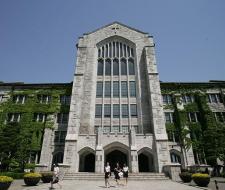 Apply with documents
Apply with documents -
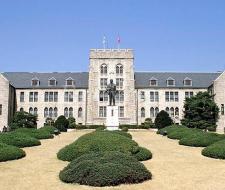 from 11000.00 $ / yearApply with documents
from 11000.00 $ / yearApply with documents -
 from 8391.00 $ / yearApply with documents
from 8391.00 $ / yearApply with documents
Alternative destinations
Education information
South Korea's education system is undergoing rapid development. If since the middle of the XX century there has been an increase in the number of preschool, school and higher educational institutions in the country, then the XXI century was marked by the active entry of South Korean universities into the international arena. At the same time, the share of foreign students in the country is growing from year to year.
School education in South Korea includes 3 stages. The first two – primary and secondary schools are compulsory to attend.
At all school levels, the duration of the lesson is 45 minutes. The academic year is divided into semesters. The first one starts in March and lasts until mid-July. The second semester is from the end of August to the tenth of February. The academic load varies from a few lessons in elementary to 11 in high school.
Study in South Korea: Opportunities, Processes, and Costs
South Korea, known for its robust education system, offers a wide array of programs at various levels, including bachelor's, master's, and doctoral degrees. The country’s educational institutions, particularly its middle and high schools, emphasize discipline and rigor, preparing students for successful university careers.
Secondary Education in South Korea
-
Middle School (Ages 12-15): Focuses on disciplines like mathematics, Korean and English, sciences, and additional subjects like art and physical education. The final year is crucial for preparing for university entrance exams.
-
High School (Ages 15-19): Offers specialized programs in science, language, and arts. Education is intensive, with up to 11 subjects, and culminates in the "Sung" exam, similar to the SAT, covering Korean, Math, and English.
Universities and Colleges in South Korea
South Korea’s higher education is diverse, featuring universities, vocational colleges, pedagogical institutes, and theological seminaries. These institutions offer:
-
Bachelor’s Degrees: Typically a 4-year program, except for medical and architecture programs, which may extend to 6 years.
-
Master’s Degrees: A 2-year program requiring the completion of coursework, a master’s thesis, and exams, including English proficiency.
-
Doctoral Programs: Available as independent 3-4 year programs or integrated programs starting post-bachelor’s and lasting at least 4 years.

What's the best time to apply to schools, and what should applicants prepare for?
It's best to start early, showing interest and getting in touch with the admissions office. Plan a visit, talk to current students and teachers, and make sure you feel comfortable with the surroundings.
Types of Universities in South Korea
-
National Universities: Government-funded.
-
State Universities: Operated by local authorities.
-
Private Universities: The majority, established by non-profit foundations and organizations.
Enrollment Process for International Students
Enrollment typically occurs twice a year. International students generally need the following documents:
-
University application form.
-
Educational credentials.
-
Language proficiency certificates (TOPIK for Korean programs, IELTS/TOEFL for English programs).
-
Passport copy and proof of citizenship.
-
Financial documentation.
-
Additional materials like motivation letters, research plans, or portfolios for graduate applicants.
Cost of Studying in South Korea
Fees vary depending on the institution and program. However, scholarships, grants, and discounts are often available to international students, sometimes covering up to 100% of tuition costs.
In summary, studying in South Korea offers international students an array of educational opportunities, from rigorous secondary education to diverse university programs. With its focus on discipline, academic excellence, and cultural immersion, South Korea is an excellent destination for those seeking to study abroad.
Literature and references
- Education in South Korea — Wiki
- A Guide to Education & International Schools in South Korea
- Korean Education System: Why is it good and how it works
- Best universities in South Korea 2023 — THE
- Korea University — THE
- List of Universities of South Korea — QS
- Study in Seoul — QS
- QS South Korea University Rankings-2023



